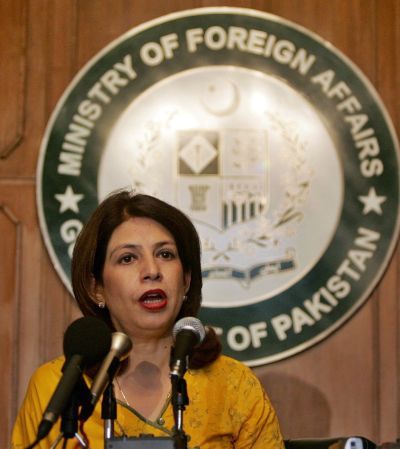 Pakistan on Thursday said India's stand that the Simla Agreement of 1972 supersedes earlier United Nations resolutions on Kashmir is not legally tenable even as it sought "serious negotiations" on all outstanding disputes.
Pakistan on Thursday said India's stand that the Simla Agreement of 1972 supersedes earlier United Nations resolutions on Kashmir is not legally tenable even as it sought "serious negotiations" on all outstanding disputes.
"I don’t understand how one country can decide that UN Security Council resolutions are no more valid," Foreign Office spokesperson Tasnim Aslam told a weekly news briefing.
She questioned how a bilateral agreement, which does not state it intends to override the UN resolutions, could "override UN Security Council resolutions".
The legal process is that if "Pakistan, India and Kashmiris reach an agreement on the settlement of the Kashmir dispute, they would have to go back to the UN Security Council to get another resolution to endorse that procedure", she contended.
"So this argument has no legal basis," she said. Pakistan wants "serious negotiations" to settle all outstanding issues, she added.
Aslam welcomed statements by Foreign Secretary Sujatha Singh while interacting with visiting Pakistani journalists that India too is keen to settle the Kashmiri issue.
"We have seen the reports of (Singh's) interaction in India. We welcome this statement. We welcome this acknowledgement," she said.
Aslam said both countries have reached a stage where the choices are very clear. "We have to have peace for progress, development and stability. And to have sustainable peace, we need serious negotiations and settlement of all disputes and outstanding issues between our countries."
Though Pakistan has repeatedly tried to involve the world community in settling the Kashmir issue, India has maintained it is a bilateral matter as agreed to by Pakistan in the Simla Agreement, signed after the 1971 war between the two sides.
The Simla Agreement, inked by then Prime Minister Indira Gandhi and her Pakistani counterpart Zulfikar Ali Bhutto on July 2, 1972, facilitated the withdrawal of troops and an exchange of prisoners of war.
Image: Pakistan Foreign Office spokesperson Tasnim Aslam
Photograph: Reuters











 © 2025
© 2025